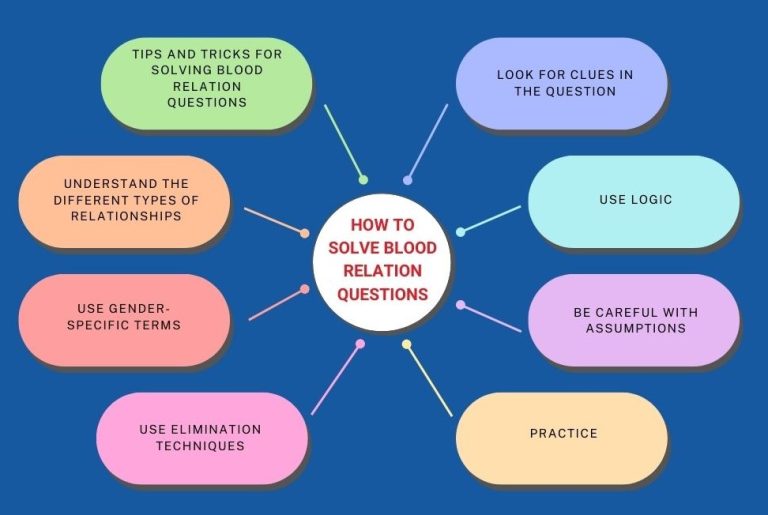When it comes to competitive examinations, reasoning sections often serve as a critical determinant of a candidate’s analytical and logical prowess. Blood Relation Questions have emerged as both intriguing and challenging among the various types of questions posed in these sections. These questions test one’s ability to logically connect and deduce relationships between different members of a family based on a given set of information. So, this article dives into the strategies and techniques to master questions based on blood relation, transforming a daunting task into a manageable and enjoyable part of exam preparation.
Grasping the Fundamentals
Before diving into complex problems, it is essential to have a strong grasp of the basics. Blood relation queries typically involve understanding relationships like parents, siblings, cousins, and various in-laws. Familiarity with these basic terms lays the foundation for solving more intricate challenges. Furthermore, mastering these fundamental concepts will enable you to approach more advanced problem-solving with confidence and precision. Building a solid understanding of blood relations is crucial in improving your problem-solving skills in this study area.
Common Patterns and Terms
One of the keys to mastering blood relation problems is to recognize common patterns and terms. For instance, terms like ‘maternal’ and ‘paternal’ are frequently used and understanding these nuances can make a significant difference. A good approach is to start by drawing a simple family tree diagram. This visual representation can immensely simplify the process of identifying relationships and deducing answers. Additionally, this strategy helps in systematically organizing information, thereby reducing complexity. Regular practice with diverse scenarios enhances the ability to quickly interpret and solve these problems, making it a valuable skill in logical reasoning and analytical assessments.
Strategies for Solving Complex Problems
As one progresses, the complexity of questions increases. Here, the strategy should shift from mere identification to logical deduction. It’s recommended to dissect the problem into more manageable segments. Address each part individually before synthesizing the information to arrive at the solution. This methodical approach minimizes confusion and increases accuracy. Moreover, practice and exposure to a variety of blood relation scenarios will sharpen your ability to discern the underlying patterns, enabling you to tackle even the most intricate problems with confidence.
Practice and Familiarity
There is no substitute for practice when it comes to perfecting skills in questions based on blood relation. Regular practice improves speed and builds familiarity with various types of questions. Therefore, this familiarity breeds confidence, which is a crucial factor in any competitive exam.
Time Management
Effective management of time is crucial. While practicing, it’s important to time oneself and gradually reduce the time taken to solve each problem. In addition, this not only improves efficiency but also prepares one for the time constraints of the actual exam.
Avoiding Common Pitfalls
A common mistake is overthinking or reading too much into the question. Remember, the information provided is all that is needed to find the answer. So, avoid assumptions or inferences that are not directly supported by the given data.
Utilizing Mock Tests and Sample Papers
Mock tests and sample papers are invaluable resources. They provide a real-time experience of the exam conditions and help identify areas of strength and weakness. Thus, analyzing performance in these tests can guide further preparation and strategy.
Conclusion
Mastering Blood Relation Questions in competitive exams is less about inherent talent and more about strategy, practice, and understanding. By building a strong foundation, recognizing patterns, practicing diligently, and managing time effectively, these questions can become a scoring area rather than a challenge. Remember, the key lies in clarity of thought and logical deduction. With the right approach and ample practice, cracking questions based on blood relation becomes an achievable target, paving the way for success in competitive examinations.

